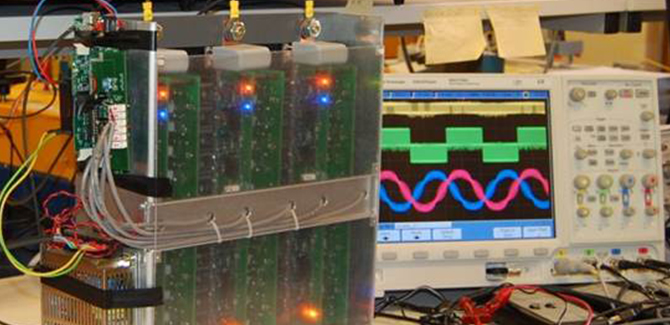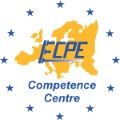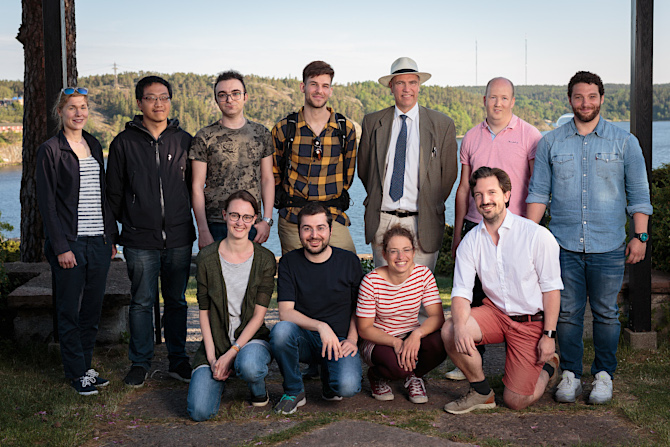Power Electronics
Power electronics deals with highly efficient and controllable conversion of electric power. It is found in renewable energy production, electricity transmission, electric transportantion, power supplies, industrial motor drives, electric energy storage, ligthting applications, etc. The power electronics group at KTH focuses on high-power electronics for grid applications and silicon carbide power electronics.

High power electronics
High power electronics concern large scale power conversion with converters in the range of tens of megawatts up to gigawatts. Typical applications range from large motor drives and railway power supplies to high voltage direct current (HVDC) links used for long distance power transmission.
KTH has for many decades conducted research into this field, starting out already in the era of mercury-arc valves. In later years, research has been focused on modular multilevel converters (MMCs) since these are rapidly being adopted in many applications that are important for our industrial partners.
System aspects of MMCs are studied in several projects. This includes research into several new converter topologies, for instance to allow for the converters to be compatible with HVDC grids. Also control and modulation of MMCs is investigated by the group. Schemes enabling lower losses and increased performance have been devised and verified by experiments on down-scaled prototypes.
The group is also investigating alternative semiconductor choices for high power converters. One track concerns converter cells based on gate commutated thyristors (GCTs), which can offer great benefits in terms of cost and power losses. Our lab enables full-scale testing of converter cells up to several MVA.
Wide-bandgap power semiconductor applications
The group has been performing research on silicon carbide (SiC) power electronics for almost 20 years. Topics that have been covered include: inverters employing massive parallel connection and diode-less operation, gate drivers for various devices including solutions for normally-ON devices, short-circuit protection of SiC transistors, investigations regarding various reliability issues of SiC MOSFETs. Also, power electronics for operation at extreme temperatures beyond 600 °C are being studied.
Furthermore, the study of high-voltage devices in SiC has recently been initiated. The work is organized as two parallel activities, where one is focused on modelling and testing of devices, and the other is focused on submodule design for high-power, high-voltage converters. Both activities are still in the build-up phase, but preliminary results indicate that bipolar devices with ratings of 30 kV can provide significant advantages both from a loss perspective and by reducing the complexity of the converter. Great reductions in converter size are also foreseen.
KTH is member of the ECPE network

KTH is partner in the European Union's H2020 project ”PROMOTioN”

KTH is in collaboration with the Wide Bandgap Power Center

Involved Faculty
Professors
Researchers
PhD Students
Project: Shubhangi Bhadoria (pdf 290 kB)
Project: Khizra Abbas (pdf 335 kB)
Project: Bhanu Singh (pdf 232 kB)
Industrial PhD Students
Project:
Project:

